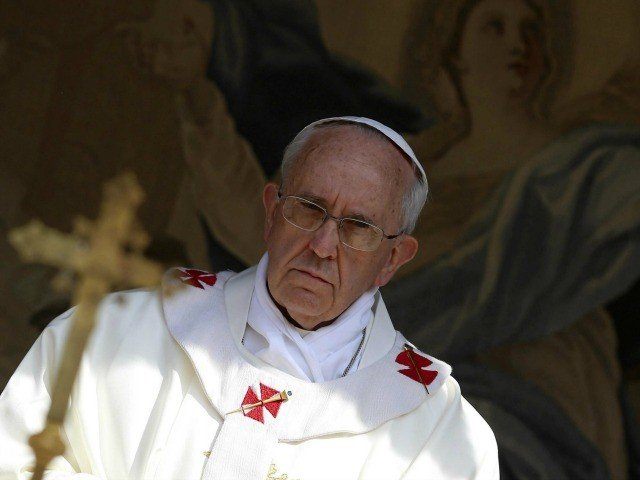Pope Francis has denounced the “grave ecological crisis” of desertification in the latest stage in his campaign on behalf of the environment.
In a message to the 13th Conference on the Convention to Combat Desertification, the Pope expressed his appreciation for efforts to combat this “grave ecological crisis of our time,” while calling for “an integral approach that links desertification to the larger ethical issues of poverty, underdevelopment and intergenerational justice that determine the overall spiritual and moral health of our global community.”
The Conference is being held in Ordos, China, which is found in Inner Mongolia.
This isn’t the first time the pontiff has spoken out against the evil of desertification, referring to a process by which fertile land becomes arid desert, usually as a result of drought, deforestation, or inappropriate agriculture.
In his 2015 encyclical letter on care for creation, Laudato Si, the Pope stated that God has so closely joined mankind to the world around us “that we can feel the desertification of the soil almost as a physical ailment, and the extinction of a species as a painful disfigurement.”
In the Thursday message signed on the Pope’s behalf by Vatican Secretary of State Cardinal Pietro Parolin, the pontiff expressed his gratitude to “the Government and people of China” for hosting this important assembly.
China has long been considered one of the world’s worst polluters, especially because of its record high concentration of fine particulate matter in its air. In 2015, a large part of mainland China was surrounded by a miasma of unbreathable smog that at times reached levels of particulates 50 times higher than the maximum levels set by the World Health Organization.
The chronic problem of pollution in China has been linked to hundreds of thousands of premature deaths and has provoked hostility toward the government in Beijing. The fine particles are believed to play a role in cardiovascular disease, lung problems, cancer, and emphysema.
Communist China boasts two of the world’s most polluted cities, Tianying and Linfen. Tianying accounts for more than half of China’s lead production, and is home to some of the worst cases of lead poisoning in the world. Long considered the world’s most polluted city, Linfen’s air is so bad that it is said that if you hang your laundry out, it will be black before it can dry.
On the other hand, despite attacks on America for its decision to withdraw from the Paris climate accord, the U.S. is among the most environmentally friendly nations on the planet according to the World Health Organization (WHO).
In the most recent WHO report on air pollution, the United States was listed as one of the countries with the cleanest air in the world, significantly cleaner than the air in Germany, Italy, Switzerland, the UK, Japan, Austria and France.
While France and other G7 countries lamented the U.S. exit from the Paris climate accord, America’s air is already cleaner than that of any other country in the G7, except Canada with a population roughly a tenth of that of the U.S.
Following standard practice, the WHO measures air pollution by the mean annual concentration of fine suspended particles of less than 2.5 microns in diameter. These are the particles that cause diseases of all sorts and are responsible for most deaths by air pollution.
In a recent list of the 25 cleanest cities in the world, the only country with three cities among the cleanest on the planet was the United States of America, with Chicago coming in second place, Honolulu coming in fourth, and Portland, OR, coming in sixteenth. Unsurprisingly, no cities from China, Russia or India made the list at all.
Pope Francis ended his message Thursday with “prayerful encouragement” of the efforts of the Conference to enable our brothers and sisters everywhere to dwell in peace and security, to contribute their gifts to the common good and to develop their full human potential.
He also invoked God’s “abundant blessings” upon the participants and upon all who support them by their research, expertise and advocacy.
Follow Thomas D. Williams on Twitter Follow @tdwilliamsrome

COMMENTS
Please let us know if you're having issues with commenting.